
Bob Freitag
Director of Institute for Hazards Mitigation Research and Planning
Bob Freitag is the Past Executive Director of the Cascadia Region Earthquake Workgroup and the Director of the Institute for Hazards Mitigation Planning and Research at the University of Washington. He is also a Certified Floodplain Manager and is on the Board of Directors with the Association of State Floodplain Managers. He has extensive experience with FEMA where he served as special advisor to Regional Director on mitigation policy issues, was appointed by President Clinton as the Federal Coordinating Officer (FCO) to manage declared disaster response and recovery operations in Alaska, Washington, Oregon and Idaho, supervised a cadre of over 200 engineers, planners, architects and accountants in implementing response and recovery operations for over 50 presidentially declared disasters in 18 states and 2 territories and prepared over 40 post disaster hazard mitigation plans covering floods, hurricanes, tornadoes, landslides, wildland Fires, earthquakes and winter storms.
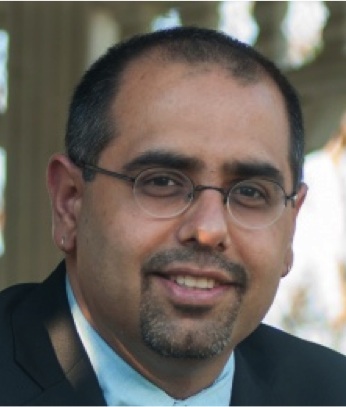
Himanshu Grover
Co-Director of Institute for Hazards Mitigation Research and Planning
Dr. Grover’s research focuses at the intersection of land use planning, community resilience, and climate change. In his research Dr. Grover examines inter-linkages between physical development, socio-economic concerns, and the natural environment. Specifically, Dr. Grover is interested in climate change management (both mitigation and adaptation strategies), urban infrastructure, and hazard mitigation. Dr. Grover emphasizes place-based planning policies wherein economic, environmental and social priorities can be balanced to achieve equitable development and build community resilience. His recent research projects also focus on pro-environmental decision-making, and adaptive planning for urban resilience. Dr. Grover also interested in issues related to social vulnerability, and environmental justice. Dr. Grover has received numerous grants to support his research interests. More details about his ongoing research are available on his homepage.
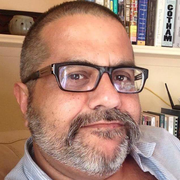
Manish Chalana
Dr. Manish Chalana’s research and teaching emphasize themes in historic preservation planning, international planning and development; and urban history. His work draws on his academic training as well as his professional and personal experiences in both the United States and his native India. Within historic preservation planning, he focuses on 1) planning for large-scale cultural resources; 2) preservation of vernacular environments; and 3) preservation planning in India. His research has been supported by grants and fellowships from the National Park Service, Graham Foundation, Rocky Mountain Nature Association, Rocky Mountain Cooperative Ecosystem Study Unit, Colorado Historical Society, Royalty Research Funds (UW); King County’s Cultural Service Agency, Washington State Department of Ecology and U.S. Department of Housing and Urban Development.
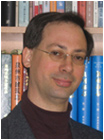
Daniel Abramson
Currently, Prof. Abramson focuses on community resilience and adaptive planning in disaster recovery and hazard mitigation, as well as periurban and rural responses to rapid urbanization. Students at all levels of undergraduate and graduate education join his work, through course projects, community-engaged studios as well as thesis and dissertation research. Projects in Washington integrate studios with FEMA- and NSF-funded research on new protocols for state agencies and communities to envision earthquake- and tsunami-resilient development. Projects in Asia have included six China Village Studios with academic partners from Chengdu and Taiwan; a six-month Fulbright Senior Research Fellowship in recovery planning after the 2008 Wenchuan Earthquake in Sichuan; a collaborations with Kobe University to use participatory GIS for urban neighborhood earthquake recovery; and collaborations with Tohoku University and CIGIDEN (Chile) to compare conditions for resilient community planning in subduction zones around the Pacific Rim.

Jan Whittington
Dr. Whittington’s professional and academic career has been shaped around the need to understand the economic and environmental consequences of large scale infrastructure projects. Our markets, governments, and quality of life depend on the consistent provision and maintenance of enormous networks of transportation, energy, water, communications, and waste. How we govern the planning, finance, design, and construction of these networks can determine the economic vitality and environmental integrity of our community. Her interest is in reducing the incredible financial and natural cost of these systems to society, while ensuring their capacity to meet the demands for service placed on them by our ever-expanding population
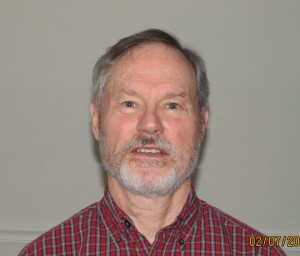
Michael K. Lindell
Michael K. Lindell has conducted research on emergency preparedness and response for a wide range of natural and technological hazards over the past 40 years. He has conducted research or provided technical services to 40 different organizations in the public and private sectors. He has provided technical assistance on radiological emergency preparedness for the International Atomic Energy Agency, the US Nuclear Regulatory Commission, the Department of Energy, and nuclear utilities and also worked on hazardous materials emergency preparedness with State Emergency Response Commissions, Local Emergency Planning Committees, and chemical companies. He has served eight times as a consultant to National Research Council committees examining environmental hazards, and has been a member of three National Research Council committees—Disasters Research in Social Sciences, Assessing Vulnerabilities Related to the Nation’s Chemical Infrastructure, and Inherently Safer Chemical Processes: The Use of Methyl Isocyanate (MIC) at Bayer CropScience. In addition, he has reviewed research proposals for 20 different foreign, federal, and state agencies as well as performed manuscript reviews for over 75 different journals in the social and environmental sciences and engineering. He has written extensively on emergency management and is the author of 80 technical reports, 125 journal articles and book chapters, and nine books.
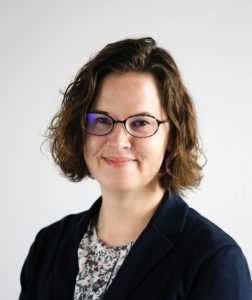
Liz Maly
Elizabeth Maly is an Associate Professor at the International Research Institute of Disaster Risk Science, Tohoku University, in Sendai Japan. With the theme of people-centered housing recovery, her research interests are community-based housing recovery and temporary, transitional and permanent housing provision within reconstruction–including policy, process and housing form–that support successful life recovery for disaster-affected people. Past and current research focuses on the experiences of people affected by disaster, and the roles of government and NGOs in the processes of housing reconstruction and resettlement after disasters in the U.S.A, Indonesia, Philippines, and Japan.